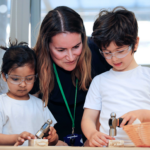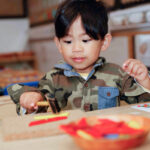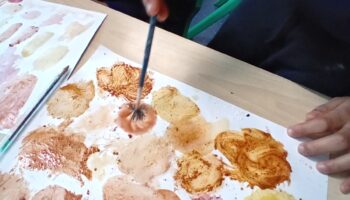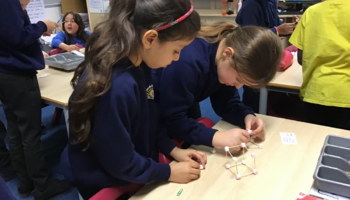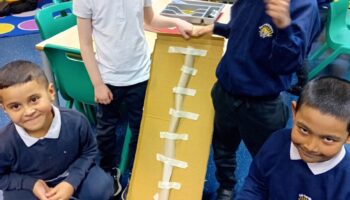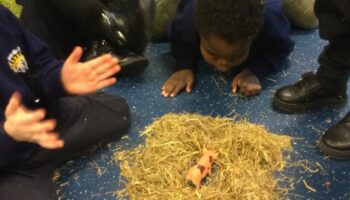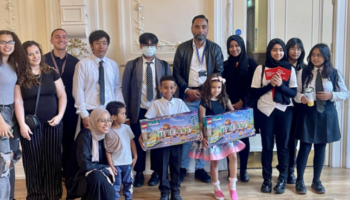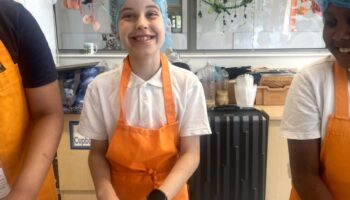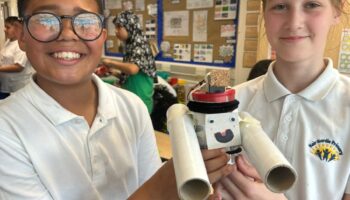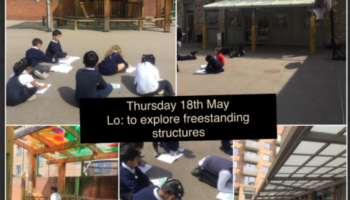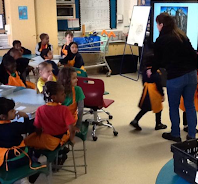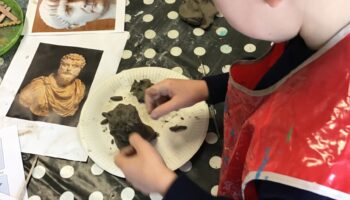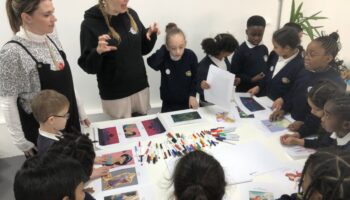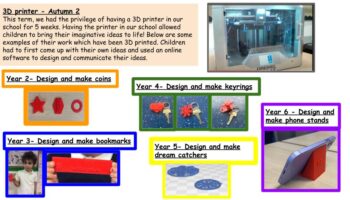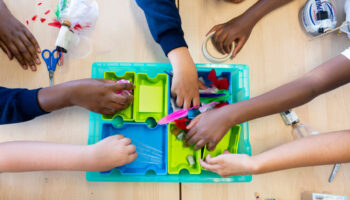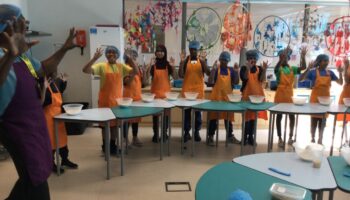Intent
The intent of the Design and Technology subject for primary pupils at our school is to cultivate a well-rounded child, aligning with our dedication to their holistic development. Our approach centres on fostering the mastery of practical, technical, and creative skills that empower students to confidently perform everyday tasks and excel in an increasingly tech-driven world.
Our primary objective is to instil the MAGIC Habits framework within our pupils, guiding them to embody these qualities throughout their educational journey. We want our students to be consistently Motivated, demonstrating unwavering enthusiasm and passion for their learning. They should approach challenges with a positive Attitude, emphasising optimism and perseverance. When obstacles arise, we encourage them to display Gumption, drawing upon their resourcefulness and resilience to overcome difficulties. We also prioritise fostering Independent thinking, empowering our pupils to think critically and make informed decisions. Effective Communication is another essential skill we emphasise, ensuring that our pupils can confidently express their ideas and collaborate effectively with others.
Our D&T curriculum is strategically designed to prepare our students for life in Modern Britain and the 21st-century world. We aim to equip them with the skills and attributes necessary to thrive in a rapidly changing society. Through D&T, we promote the development of resilience, curiosity, critical thinking, problem-solving abilities, teamwork, creativity, and a passion for lifelong learning. Engaging in hands-on projects and design challenges, our pupils not only acquire practical skills but also nurture their ability to think independently, innovate, and adapt to new situations. Our D&T program aims to instil the confidence and competence required for the next stages of their education and beyond.In summary, our D&T subject intent is two fold: we empower our primary pupils with the MAGIC Habits, ensuring they are Motivated, exhibit a positive Attitude, demonstrate Gumption, possess Independent thinking skills, and can effectively Communicate. Simultaneously, we aim to prepare them for the future by fostering resilience, curiosity, critical thinking, problem-solving abilities, teamwork, creativity, and a lifelong love for learning. This holistic approach ensures our students are well-prepared for success in a technologically-driven world and equipped to excel in an ever-changing society.
Implementation
The implementation of our D&T curriculum at Keir Hardie is tailored to align with national curriculum objectives, centring on the fundamental principles of design, making, evaluation, and technical knowledge. The curriculum is structured into six distinct strands, specifically textiles, mechanisms, structures, electrical systems, cooking and nutrition, and mechanical systems. This approach ensures a comprehensive education in design and technology for our students.
Each academic year, every year group will undertake three D&T units, following a structured iterative cycle. This guarantees that students progressively develop their skills and knowledge across each of the D&T strands as they progress through their educational journey.
To promote healthy choices and emphasise the significance of a varied diet, each year group will explore one cooking and nutrition topic tailored to our school context. Our aim is to empower students with the knowledge and skills needed to make informed dietary choices and to generate ideas for healthy snacks. To achieve this, we collaborate with external agencies, such as Kokura Workshops, offering children opportunities to work with experts in the field of baking.
A key aspect of our curriculum involves instilling a sense of social responsibility in our students by collaborating with organisations like the Institute of Imagination. Workshops with the theme of ‘save, make, and reinvent’ encourage creative thinking, resource reuse, and an understanding of sustainability. These projects also contribute to a deeper understanding of structures and electrical systems, integrating these concepts into the broader context of the workshops.
We actively encourage our students to draw connections between D&T and other curriculum areas. For instance, in Year 4, when designing torch lights, children learn about electricity and circuits in their science lessons, enabling them to apply scientific knowledge to their D&T projects.
To support our teachers, the school has subscribed to the D&T Association, granting access to a wealth of resources. This resource pool aids teachers in enhancing their Continuous Professional Development and acquiring materials to support the delivery of each D&T project.
Comprehensive learning journeys are provided to teachers, outlining the expectations of each D&T project. This further supports our teachers in effectively planning and delivering the curriculum, ensuring that students receive a high-quality D&T education.
A noteworthy feature of our D&T curriculum is the incorporation of a 3D printer. This technology empowers our pupils to engage in computer-aided design and produce prototypes of their designs. It offers an alternative and innovative method for students to communicate their design ideas and enhances their creativity and problem-solving skills.
In summary, our D&T curriculum is designed to offer a well-rounded and enriching educational experience, ensuring that students meet national curriculum objectives while fostering creativity, practical skills, and a sense of social responsibility. The integration of external expertise, cross-curricular connections, and access to valuable resources underpins our commitment to delivering an exceptional D&T education. Additionally, for students with Special Educational Needs and Disabilities (SEND), we facilitate access to the curriculum through adaptive resources, visual aids, tactile materials, targeted support, and smaller focus groups, making the hands-on approach of our D&T curriculum accessible to all.
Impact
The structured D&T curriculum will empower students to significantly advance their design, crafting, and evaluative skills. Progression in their abilities will be evident as they move through different year groups.
The inclusion of cooking and nutrition topics will equip students to make informed and healthier food choices. They will gain practical cooking skills and a deeper understanding of balanced diets.
Collaborations with organisations such as the Institute of Imagination will nurture students’ creativity and a strong sense of social responsibility, leading to a greater appreciation of sustainability and recycling.
The integration of D&T with other subjects will enrich students’ learning experiences, helping them understand vital technical knowledge through practical applications.
Our curriculum will emphasise the development of ‘magic habits,’ such as motivation, a positive attitude, effective communication, independent thinking, and gumption. These habits will promote holistic personal growth, encourage resilience, and develop critical thinking skills.
Our proactive approach to supporting underperforming students will ensure that all students, regardless of their starting point, can excel and reach their full potential. The D&T curriculum will equip them with the skills they need to thrive in a rapidly changing, modern Britain where adaptability, problem-solving, and critical thinking are highly valued.
These comprehensive educational experiences are designed to achieve outcomes that will make students feel a sense of achievement and pride. They will cultivate resilience in the face of challenges, enhance students’ fluency in key terminologies, and provide a solid grasp of technical knowledge. In sum, our D&T curriculum will empower young adults to not only be technically proficient but also well-rounded individuals who are prepared for the complexities of modern life in Britain. Furthermore, our curriculum will inspire a generation of passionate designers and engineers, driven by the skills, knowledge, and creativity it provides

